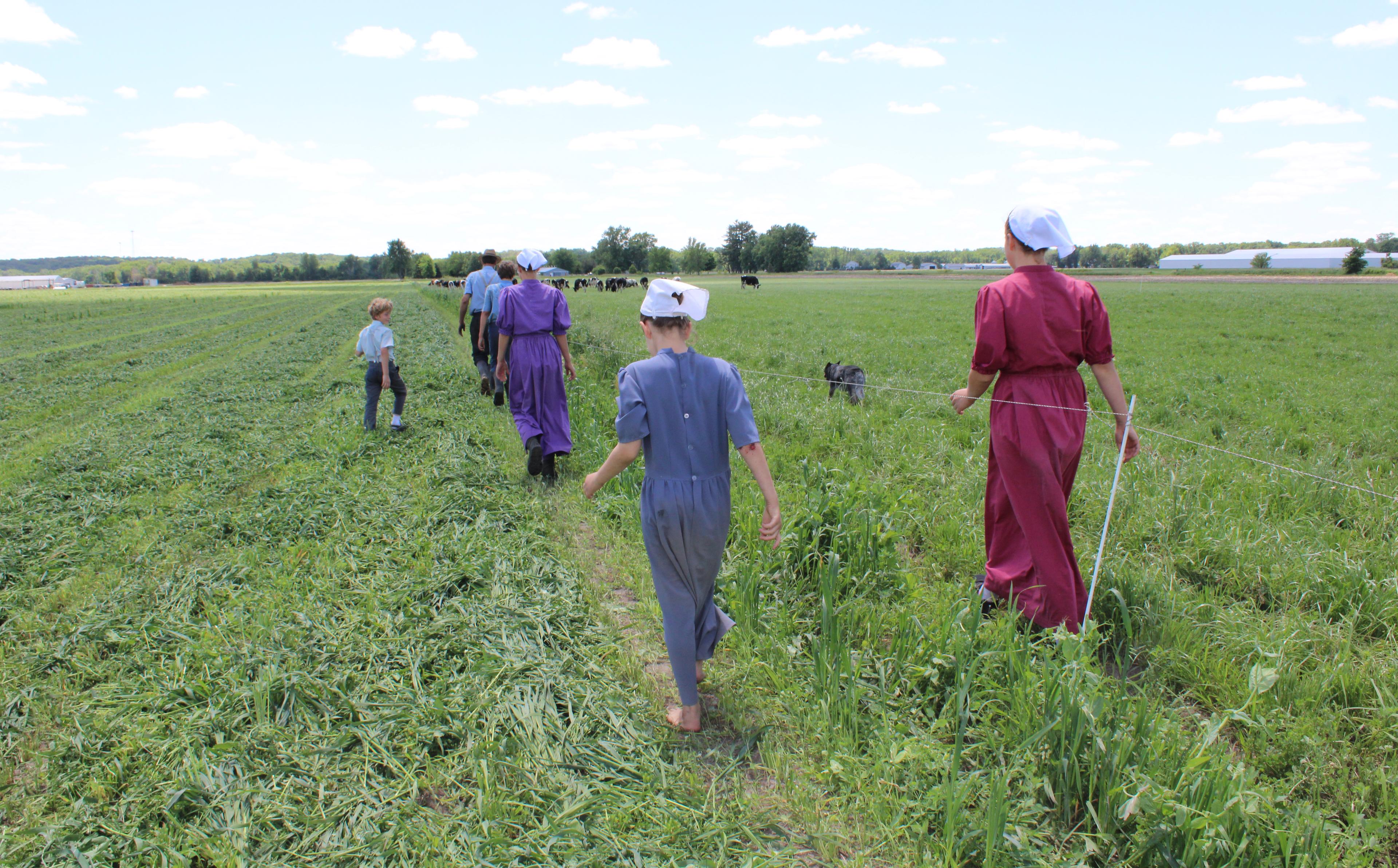
Farming
An Iowa Farmer’s Cows, Fence and Farm Are Now Secure
It’s not a long walk to the cow pasture at the Miller family’s organic farm. They’ve followed the path hundreds of times but see something new with every step and every season. About a year ago, walking in these same green pastures, Toby Miller knew something had to change or there would be no cows at the end of the trail.
On a recent afternoon on their Iowa farm, Miller and his five children stopped to look at freshly cut peas and noticed the tiniest of pods starting to poke out. The children gathered around Dad to take a closer look and talk about the wonders of a blossom transforming into a pea. This was a learning opportunity, a chance to connect with each other and the natural resources on their farm.
But there wasn’t much time to dawdle. The reason for this walk to the field was because 14-year-old Joyce could see from afar that “Onion” thought the grass was greener on the other side of the fence. The persnickety cow had made her way to the freshly cut pea field, and it was time to get that gal back with her herd in the pasture where she belonged.
Toby grabbed a roll of wire to mend the fence while the children rounded up Onion. Following Dad’s instructions, the oldest boy, Lamont, helped repair the fence. They smiled, they laughed and importantly, they got Onion back in. They made it look easy. But farming isn’t always easy, and neither are the financial ups and downs. Ask Toby.
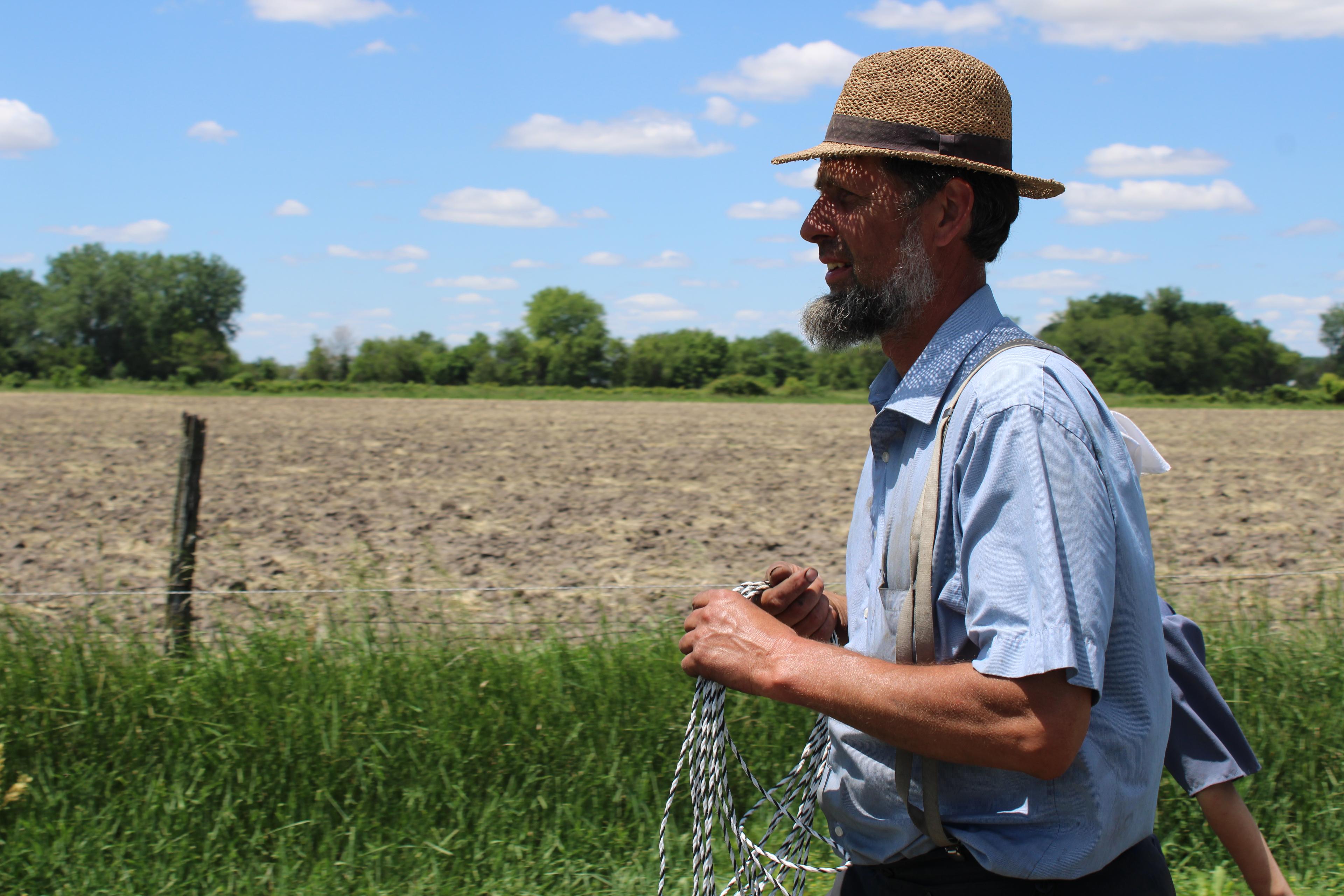
Toby Miller prepares to fix a fence.
Millers Become Organic Valley Member-Owners
Organic Valley welcomed 40 new family farms in the first four months of 2024 and expects to bring in 70 more by the end of the year. In 2023, Organic Valley welcomed more than 80 new farms to the co-op. Toby and his wife Nona are among the new farmers.
The Miller family lives in southeast Iowa; a place of gravel roads, horseshoe repair shops and large grain bins scattered across the countryside. Toby has farmed his entire life, as did his parents and grandparents. He didn’t want to give up farming after several challenging years, but he came close.
In 2005, Toby and Nona bought a farm a few miles from Toby’s parents. There were not many, if any, organic dairy farms in the area and no place to sell organic milk. The family started selling organic milk on the conventional milk market, which typically pays far less per hundredweight — the unit of measuring milk. Depending on herd size and milk quality, selling conventionally can mean tens of thousands of dollars of loss for an organic farmer in a year.
After trying different strategies for selling his milk, Toby couldn’t make a go of milking cows on his own any longer. Then he approached Organic Valley. After the co-op ensured the farm followed all organic, quality and animal care standards, he became a member. It was a relief.
“Organic Valley does for me what others can’t do; the most beneficial is providing a stable, solid market for my milk,” he said.
What would he have done if Organic Valley didn’t come into the picture? “Quit milking,” he said. Maybe become a mechanic.
Organic Valley sets a stable pay price for its members, while many farmers across the country have little or no control over the price they receive. Farmers sell their milk to a processor, which pays them based on the regional base prices for milk set by the U.S. Department of Agriculture.
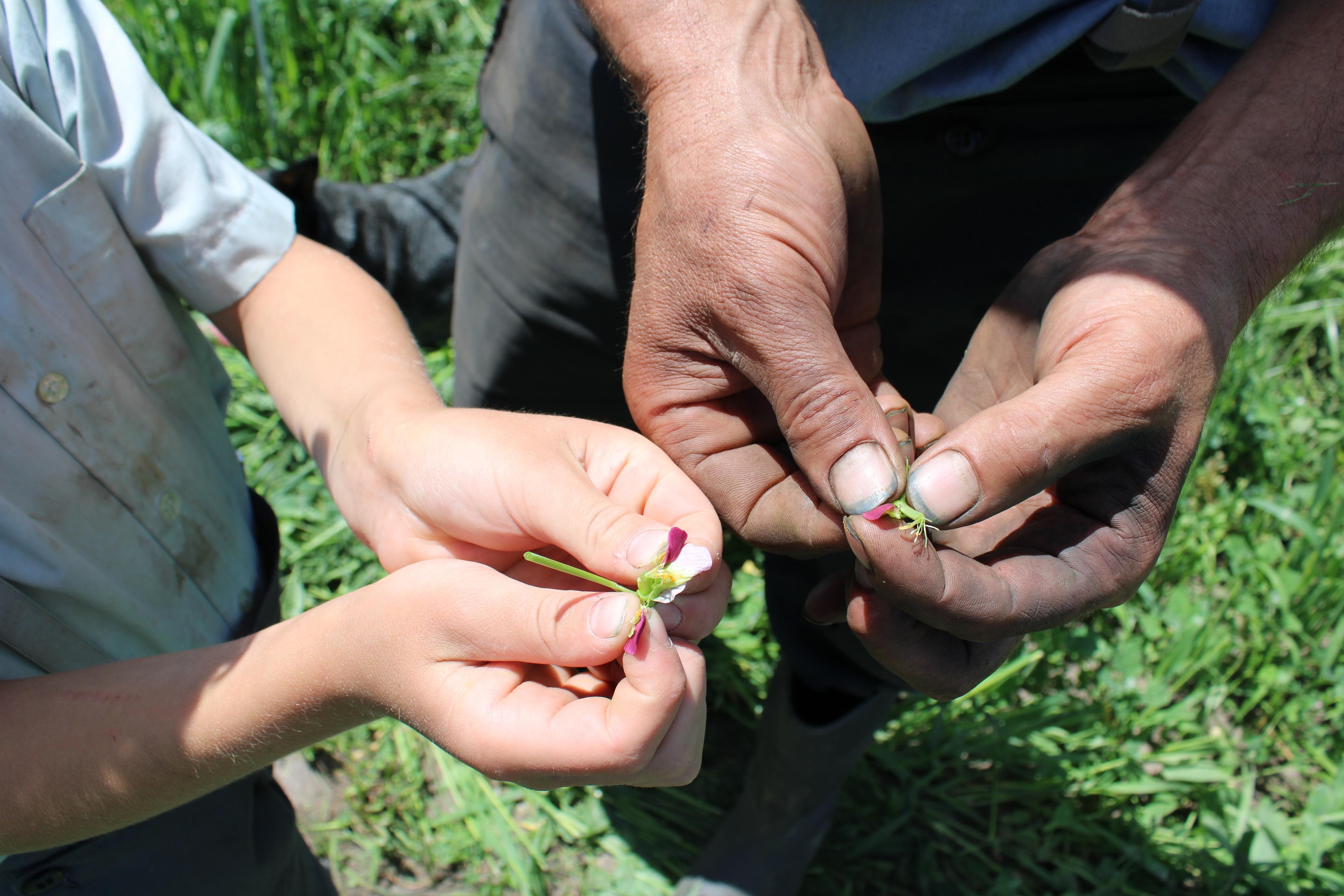
The Millers look at pea blossoms on their Iowa farm.
Contentment and Satisfaction from Farming
Toby sees so many benefits in farming — for his family, his land and his spirit. Spring is a special time for sowing peas, oats and corn and preparing hay for the winter ahead. Cows are on thick green pastures of orchard grass, alfalfa and fescue, and grassland birds like meadowlarks, dickcissels and bobolinks are sharing their songs. And when fall enters, all of the hard work is rewarded in the harvest.
Being his own boss is also important, and farming excites the Miller children. The children enjoy milking cows and helping on the farm. Farmers in their own right, they all hope to be farmers when they grow up. They chatter off plenty of reasons, which include “it’s work and play together” and “I like all the animals.”
Staying Away from Toxic Chemicals
Organic farming can be more labor-intensive than conventional farming because toxic chemicals are not used to control invasive weeds and other pests. Sometimes this means walking a pasture for hours and cutting harmful weeds by hand or investing in other land-intensive pest and weed management. (The Miller family’s least-adored chore is pulling weeds.)
Toby could have taken the easier road and dropped his organic certification when he was selling milk conventionally, but he didn’t.
“Organic is better for everything,” he said. “I don’t want to expose my family to chemicals.”
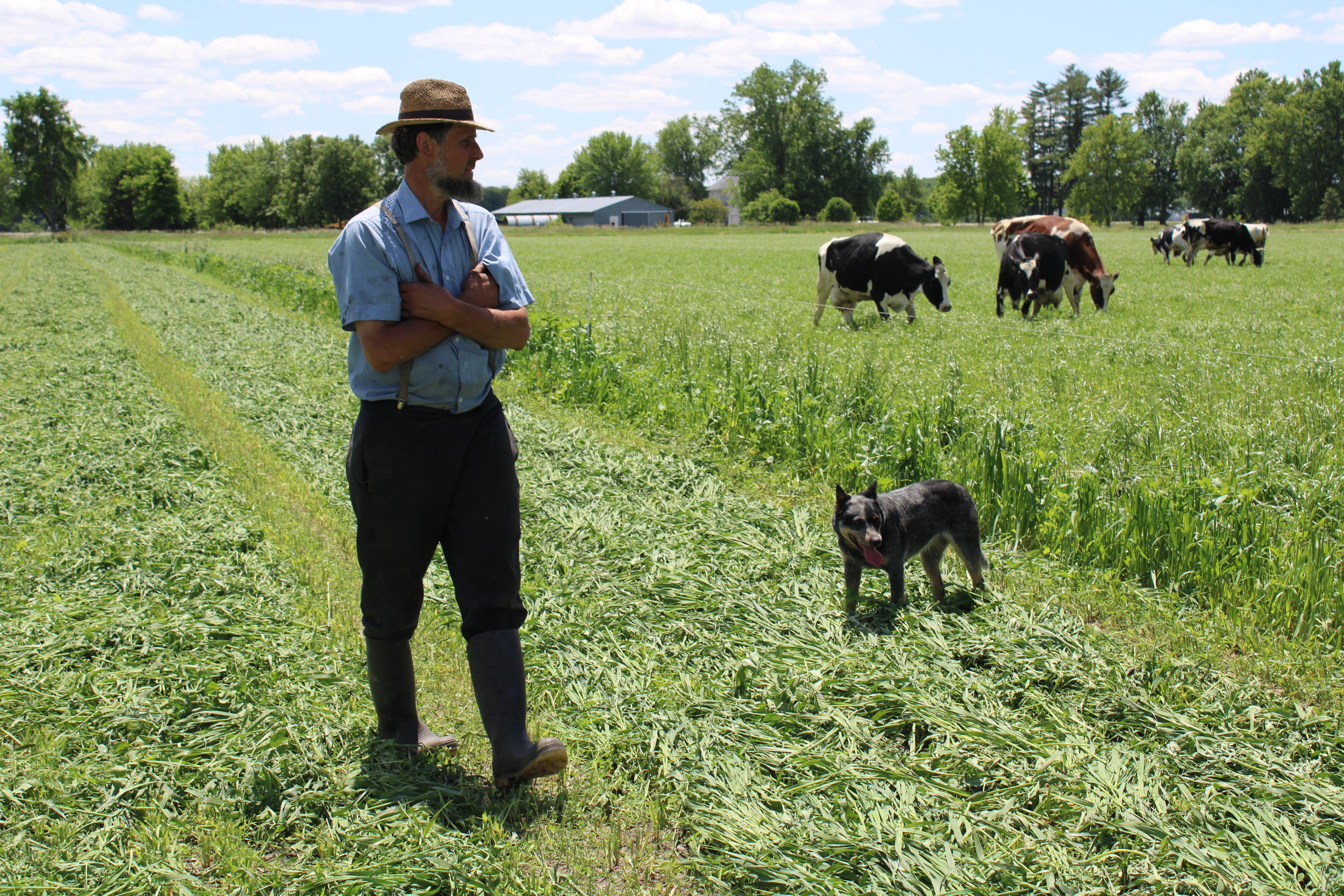
Toby Miller checks on cattle on his organic farm in Iowa.
The Status of Iowa Farms
Iowa has a strong agricultural heritage. Though the number of certified organic farms in Iowa fell by about a dozen between the USDA’s most recent Ag Censuses in 2022 and 2017, not is all bleak. While the majority of the U.S. is losing farms, Iowa gained about 800.
The 2022 USDA Census shows Iowa is the third in number of farms, right behind Texas and Missouri.
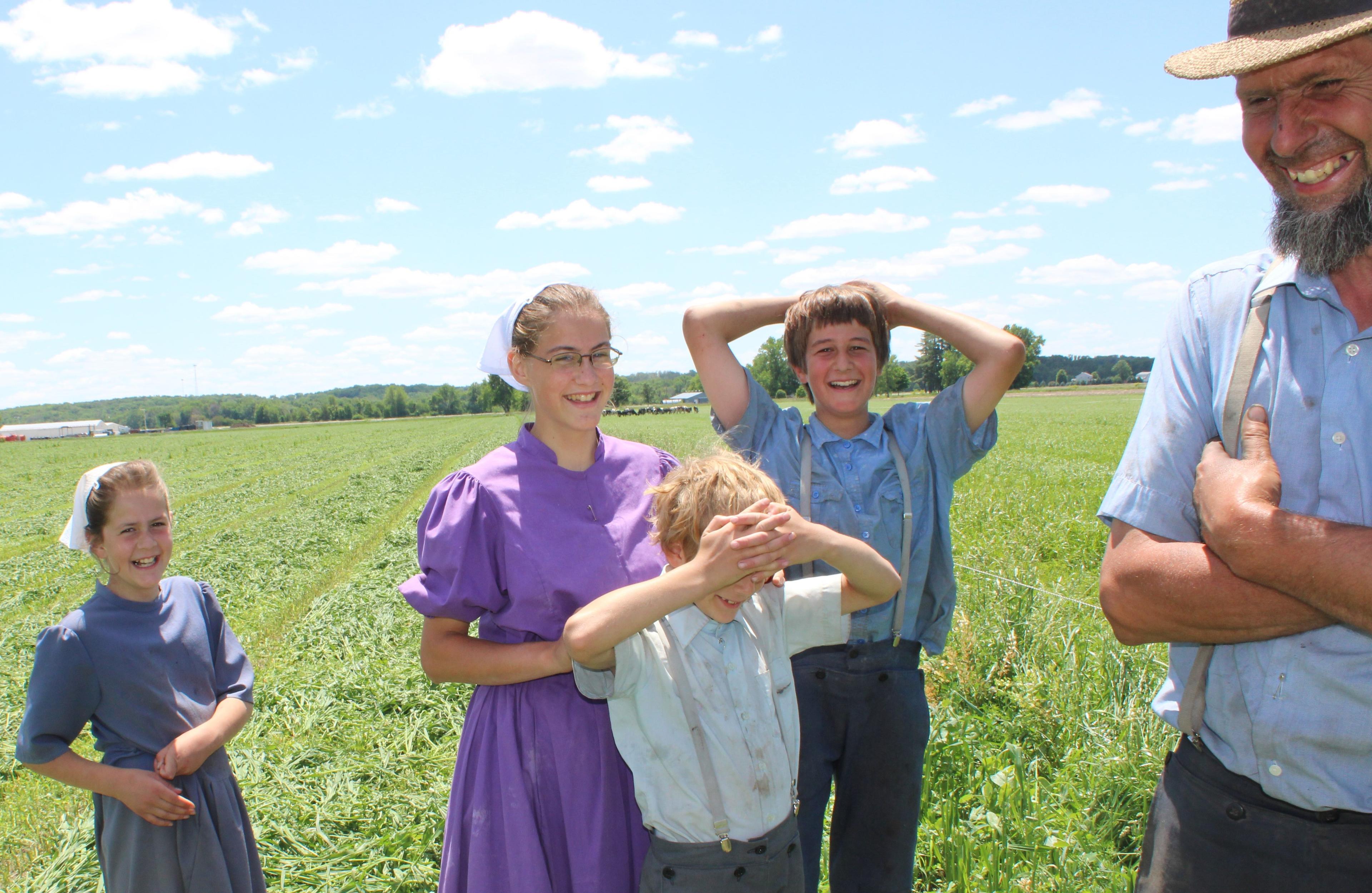
The co-op’s mission is to save and safeguard small organic family farms and we are inspired by the Miller family’s resilience and dedication to farming. We hope the Miller family, and dozens more like them we are welcoming to Organic Valley, can continue to find contentment and satisfaction from farming organically for generations.
What Makes a Farm a Farm?
Nine-year-old Lorna asked Dad if a farm is still a farm if there is only one cow. “I suppose so,” was the response. The family milks fewer than 40 cows, and after a bit of reflection, Toby questioned if he would have completely quit milking cows if he hadn’t found a sustainable market.
He doesn’t have to contemplate that question anymore. The milk truck arrived on his small family farm on Aug. 16, 2023, to pick up milk to be marketed through Organic Valley.
An antique typewriter fanatic and chicken mom who treasures time outdoors admiring all that nature has to offer, Jennifer McBride is Rootstock’s editor. McBride spent 15-plus years as a journalist and newspaper editor before finding her niche with the nation’s leading organic dairy cooperative. Contact her at Rootstock@organicvalley.com.
Related Articles
- Tags:
- farm life,
- family & kids


















